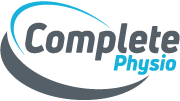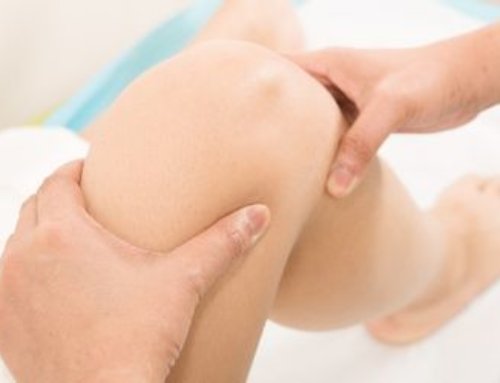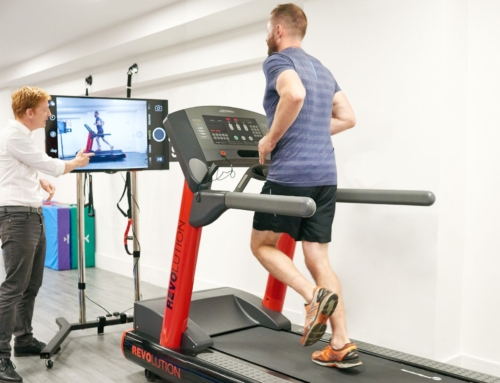What is a Frozen Shoulder?
Frozen shoulder (or Adhesive Capsulitis) is a common condition that causes a distinct pattern of pain, stiffness, and loss of function. At Complete we provide a comprehensive, one stop clinic for the treatment of frozen shoulder.
Frozen shoulder pain and the associated symptoms can be very debilitating, and cause a significant impact on your quality of life. It is essential that you are diagnosed correctly, in a timely fashion, to ensure you are receiving the correct treatment. Essentially the two treatment options are physiotherapy and/or an ultrasound guided injection, depending on the stage of the condition you are in.
A frozen shoulder is the result of the thickening and contracture of the joint capsule (the thick connective tissue that encases the shoulder joint), which also becomes inflamed and tight. This causes the characteristic pain and stiffness associated with a frozen shoulder.
Frozen Shoulder has 3 distinct stages:
- Freezing (painful) stage. Any movement of your shoulder causes high levels of pain, and your shoulder’s range of motion slowly starts to become limited. This phase can last anywhere between 1-6 months
- Frozen (stiff) stage. Shoulder pain may begin to diminish during this stage. However, your shoulder becomes stiffer, and using it becomes more difficult. This stage commonly lasts between 6-15 months
- Thawing stage. The range of motion in your shoulder begins to improve and the pain continues to reduce. Your strength and upper limb function returns. This phase can last 15-24 months.
The duration and nature of each stage can differ between patients. Frozen shoulder symptoms can take several years to resolve and so it is essential that you receive the correct treatment according to the phase you are in.
There is a lot of debate about what causes a frozen shoulder. The exact cause is unknown. It often occurs for no apparent reason, although it can also be triggered by a fall or minor injury, or sometimes following trauma or surgery if the arm has been immobilised for a period of time.
It is a condition that will affect between 2-5% of the population. This can increase to 20% in diabetic patients.
It mostly affects people in middle age, usually between 40 and 60.
Women are three times more likely to be affected than men, and there are also a few medical conditions that make you more susceptible to developing a frozen shoulder, such as diabetes, Parkinson’s disease, cardiovascular disease, or problems with your thyroid.
What are the symptoms of Frozen Shoulder?
- Severe shoulder pain, especially at night – the pain can often radiate down into the upper arm and into the forearm.
- Sudden onset of pain, or it can develop progressively over several weeks or even months.
- Stiffness and loss of movement in the affected shoulder
- Loss of function, especially with overhead movements or activities like washing your hair and dressing/undressing, reaching behind you, and putting your hand behind your back e.g., putting on a bra.
If you feel you may have a frozen shoulder it is recommended that you seek professional assistance as soon as possible.
At Complete Physio we have expert clinicians who will take you through a thorough shoulder examination and can determine an accurate diagnosis. Our clinical specialists can also carry out an ultrasound to confirm the diagnosis and rule out other conditions such as a rotator cuff tear. Correct and timely diagnosis leads to timely and accurate intervention.
Frozen shoulder is commonly misdiagnosed as it can mimic other conditions such as:
How is a Frozen Shoulder diagnosed?
A formal diagnosis is made by carefully assessing your specific signs and symptoms, using a combination of tests to assess your range of movement and strength. Frozen shoulder causes a specific pattern of pain and stiffness.
All our physiotherapists are experienced in diagnosing frozen shoulder and will be able to identify if you have one. This will be carried out at your first session.
Common movements that patients often have difficulty performing include:
- Reaching above shoulder height
- Reaching behind their back e.g., doing up a bra or tucking in a shirt
- Putting their hand behind their head e.g., washing or brushing their hair
- Throwing a ball
- Reaching out and to the side e.g., putting on a seat belt
If, after completing a clinical assessment, your clinician is still unsure of your diagnosis you may be referred for an x-ray or an ultrasound scan.
X-Ray
An X-ray is to rule out other shoulder pathology which can present such as osteoarthritis or calcification. The X-ray of a patient with a pure frozen shoulder will usually be normal.
Ultrasound
A diagnostic ultrasound scan can be carried out at Complete by one of our clinical specialists. We do not charge an additional fee for an ultrasound scan. The scan shows the soft tissues surrounding the bone including the rotator cuff tendons and the bursa.
An ultrasound scan is as accurate as an MRI at identifying other shoulder conditions that may mimic a frozen shoulder such as a rotator cuff tear or bursitis.
The in-depth, comprehensive nature of our assessments results in a highly specific diagnosis and the development of an effective, individualised treatment approach.
What are the treatment options for a Frozen Shoulder?
From our experience, many of our patients get significant improvement in their symptoms with the right input and support from a specialist physiotherapist who has good experience in treating frozen shoulder. However, the effectiveness of physiotherapy and other frozen shoulder therapies such as a steroid injection or Hydrodistension, are dependent on the stage of your frozen shoulder.
Frozen Shoulder Stage 1 – Freezing Stage
Initially, in the painful phase it is not uncommon for the pain to be too severe for you to engage in physiotherapy. Instead, the focus is on pain management techniques and medical treatments like analgesics or steroid injections.
This could include:
- Modification of your activities and avoiding tasks that aggravate your pain
- Joint mobilisations within a pain free range
- Muscle release and soft tissue massage
- Sports taping to support the shoulder
- Acupuncture
- Transcutaneous electrical nerve stimulation (TENS) – used to help control pain
- Analgesics such as paracetamol or non-steroidal anti-inflammatory medication – these should always be prescribed by a suitably qualified health professional.
- Ultrasound-guided steroid injections
Ultrasound-guided steroid injections have been shown to be the most effective treatment in the painful stage (stage 1) of a frozen shoulder. This is well-supported in the medical literature and recommended in the NICE guidelines for frozen shoulder treatment.
At Complete Injections, our clinicians are fully qualified at performing ultrasound-guided injections and are highly experienced in treating frozen shoulder.
Injections are used to reduce the pain and inflammation associated with frozen shoulders, particularly at night. This allows a ‘window of opportunity’ for you to rehabilitate your shoulder effectively with less pain. Research has recommended that, for best results, a course of physiotherapy should be started within two weeks after receiving a shoulder joint injection.
“An ultrasound-guided steroid injection is a safe and effective treatment for frozen shoulder. It provides the pain relief to ensure you get a good night’s sleep and can engage in physiotherapy and exercise”
Frozen Shoulder Treatment Stage 2 – Frozen Stage
Physiotherapy is found to be most effective in stage 2 and 3 of the condition. During this phase, pain will be decreasing, and it is then important to try and reduce the stiffness and improve range of movement and function.
Your physiotherapist at Complete will provide you with a tailored programme based on your personal profile. This will often include:
- Passive joint mobilisations to the shoulder and surrounding joints such as the neck.
- Muscle release techniques, soft tissue mobilisation and massage – especially around the shoulder girdle, neck and shoulder joint itself.
- Stretches – closed-chain and assisted stretches to mobilise the joint.
- Mobilisation with movement (MWM’s) – these are specific techniques performed by your highly trained physiotherapist which have been shown to be very effective in helping improve range of movement.
- Strengthening exercises – studies have shown that specific strengthening exercises, for example, isometric (static) exercises of the rotator cuff muscles have shown improvement in pain and function.
- Ultrasound guided hydrodistension – this procedure involves injecting saline along with cortisone and local anaesthetic into the capsule to stretch the capsule. It is thought that this helps to try and break down capsular scarring and adhesions. This procedure can be done in stage 1 and 2 and must be followed up with physiotherapy for best outcomes.
Often there is no one single treatment that is a magic cure for a frozen shoulder, and your therapist will likely work through a varied programme involving some ‘hands-on’ therapy as well as specific exercises for you to do independently.
Frozen Shoulder Treatment Stage 3 – Thawing stage
As your shoulder range of movement increases and your pain is minimal, your physiotherapist will adapt your treatment programme to give you the best chance of regaining full shoulder motion and returning you to full function, whether that is lifting your child or playing tennis or golf.
According to current research, it is during the thawing phase that physiotherapy has the most benefits.
Often treatment will be more exercise based which you will do with the supervision of your specialist. These are likely to include:
- Sustained multidirectional open-chain stretches, to help restore flexibility to the joint capsule
- Weight Bearing and proprioception exercises, to help to retrain your brain and regain its trust in using the affected arm
- Faster, more explosive and higher-load exercises
- Functional and sports specific exercises
- More global exercises that integrate the whole body
- Ongoing manual therapy (‘hands-on’ physiotherapy treatment and soft tissue work)
Throughout your treatment at Complete Physio, we will keep revisiting your personal goals and activities, so that we maintain the focus on making your life easier and ensuring that you feel supported and involved in your rehab process. We are dedicated to getting you back to full function and we have the correct skills and knowledge within the practice to ensure this goal is achieved.
At Complete we provide a comprehensive, one stop clinic for frozen shoulder sufferers, from diagnosis to treatment including ultrasound-guided injections. All these treatments can be carried out within our London clinics, which means you do not need to visit different specialists. Our one stop service also makes your treatment more affordable and accessible.
If you would like to book an appointment, please call 020 7482 3875 or email info@complete-physio.co.uk.
Don’t let pain hold you back, book now!






